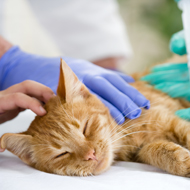LGBT+ discrimination remains in vet profession, survey reveals
Over half of professionals have seen some form of discrimination.
A survey of the profession has highlighted ongoing discrimination towards lesbian, gay, bisexual, transgender and other LGBT+ veterinary professionals and students.
An analysis of 130 survey responses found that over half (55.4 per cent) of participants had experienced or witnessed a form of discrimination, ranging from microaggressions to threats of violence.
Responses also revealed that over half of survey participants were not fully ‘out’ to everyone at their workplace or place of study. Researchers say this could indicate that LGBT+ professionals and students still do not feel safe or welcome around their colleagues.
Among the concerns of these respondents was a fear of negative repercussions to their career progression or educational attainment. This fear could lead to stress, anxiety and a sense of disconnection from their colleagues.
In contrast, LGBT+ professionals which were ‘out’ to their colleagues were most likely to feel supported at work and within the wider veterinary community.
The research team, from the University of Surrey and the Royal Veterinary College, has called for the veterinary profession to collaborate to ensure everyone can work free from discriminatory behaviour.
Charlotte S. McCarroll, associate head of school (education) at the University of Surrey, said: “For our LGBT+ family, friends and colleagues, discrimination remains a pressing issue within the UK veterinary profession.
“More needs to be done by our institutions for these individuals to feel supported, including increasing and promoting support networks, improving education and training on anti-discrimination laws, and firmly promoting equality, diversity and inclusion initiatives.”
Peter Heather, president of BVLGBT+, added: “Within our profession there are many employers and colleagues who remain committed allies, but as this study shows, discrimination against LGBTQ+ people in the veterinary profession persists.
“To combat this, leaders in our profession need to educate others and themselves about discriminatory behaviour and learn more about the benefits of open and inclusive work and study environments that allow people to just be themselves.”
The full study has been published in the journal VetRecord.
Image © sasarin pamai/Shutterstock






 RUMA CA&E has extended the deadline for its online survey into vaccine availability.
RUMA CA&E has extended the deadline for its online survey into vaccine availability.
